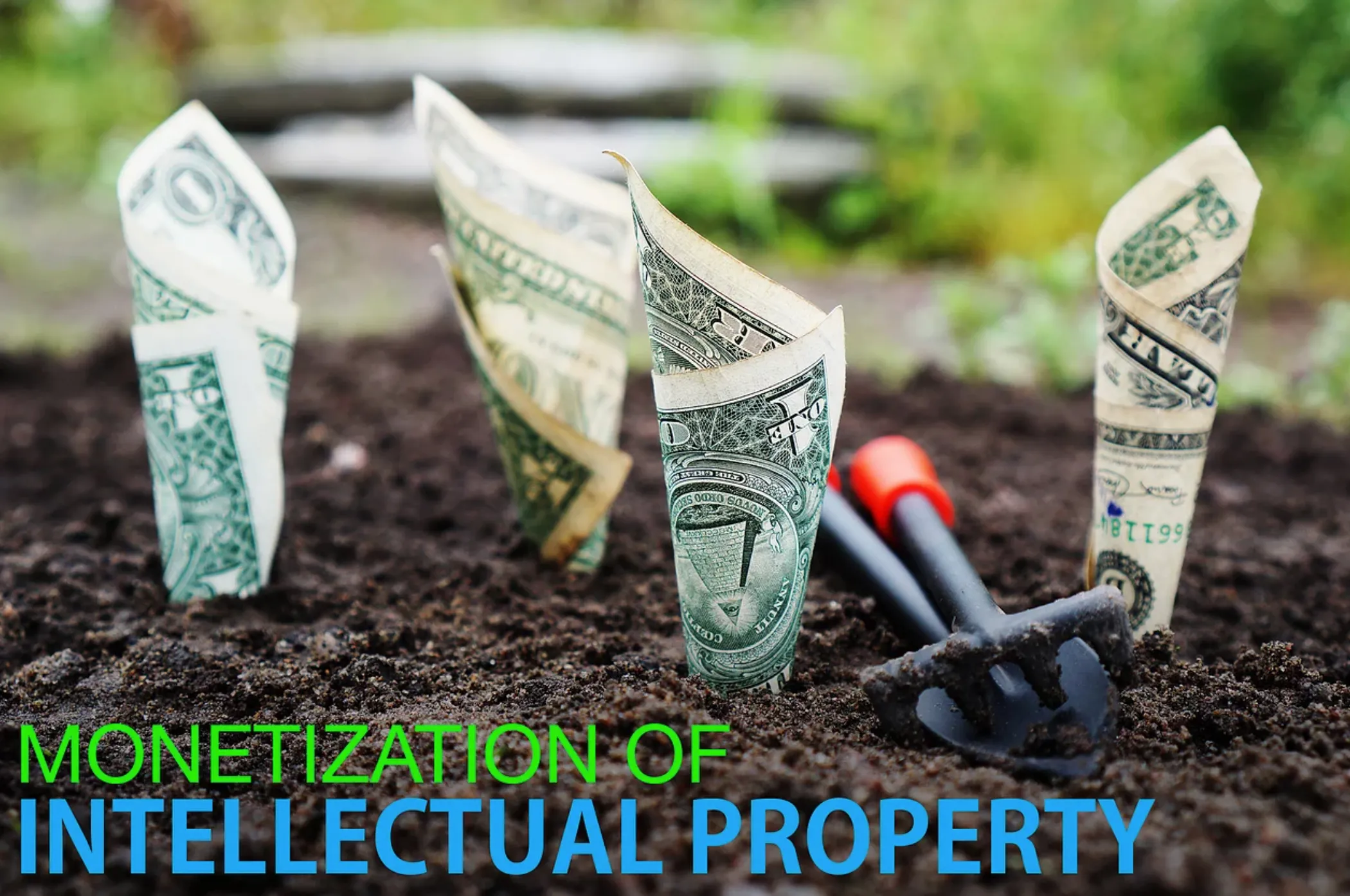The act of monetizing intellectual property (IP) to create income is referred to as IP monetization.

The act of monetizing intellectual property (IP) to create income is referred to as IP monetization. IP is being monetized in a variety of sectors, from media to healthcare. There are many methods to generate cash from intellectual property, each of which requires a unique combination of talents and competencies. With the advent of new rules and more competition in the IP market, monetizing IP is becoming a more difficult endeavour.
Table of Contents
Different Types of Intellectual Property
Examples of intellectual property (IP) or intangible assets include:
Patents are technological innovations.
Brand logos, slogans, phrases, and jingles are examples of trademarks.
Written documents, computer programmes, and drawings are examples of copyrighted materials.
Industrial design of items is one example of a design.
Trade secrets are methods of doing something that are only known to a few people or organisations.
Domain names serve as website addresses.
Others, like as a company’s goodwill, are examples.
IP monetization
Intellectual property (IP) is the result of a one-of-a-kind mix of know-how and human cognitive process that confers certain advantages on its owner. The development of intellectual property assets is critical to an entity’s competitiveness, growth, and innovation. Because it is typically proprietary technology, intellectual property (IP) should be protected in the same way as other valuable corporate assets. It can be used to supplement overall profits and diversify risks by generating additional revenue.
IP and other intangible assets are often generated as part of a company’s overall productivity and development. Although these assets contribute to the company’s primary economic asset, other monetization methods may be applied to create additional money.
It is usual, for example, for peripheral intangible assets to become by-products of a company’s primary commercial activity. Rather than being put to the sidelines, such assets may be leveraged to create money. In another case, monetizing key intangible assets may result in several income streams rather than the conventional one revenue stream. Previously, patents were exclusively viewed as mechanisms for granting exclusion and restriction rights. However, they are now gaining importance as intangible assets.
IP monetization is the process of generating monetary value from intellectual property development. While it was formerly focused on e-commerce, high-tech, pharmaceutical, and brand royalties, it is now gaining traction in a broader range of sectors, including:
Media
Automotive
Services relating to finance
Medical equipment
Biopharmaceutical
Other sectors that heavily depend on technology
Patent trading is becoming an important component of the financial world. In 2016, around $600 billion in patents were exchanged internationally. Royalties on patent licencing are likewise on the increase across the globe.
Many IP owners in business, academia, and government are preoccupied with producing IP but have no idea how to efficiently commercialise it. In the early phases of product line plan creation, this is often characterised by technological push surpassing market pull. It often leads to stranded innovation, a scenario in which a large amount of money and resources have been spent to generate unique intellectual property (IP), but a lack of knowledge prohibits the IP’s owners from receiving a meaningful return.
How to Make Money from IP
The first stage in any IP monetization effort should be to precisely define the aims. Essentially, there are two options:
Creating value by spinning off new firms focused on enhancing the market infrastructure for IP-based goods.
Approaching global firms or partners to provide licencing options in certain domains where the IP may be used.
To guarantee that true value is realised, each way of monetizing IP requires specialised talents and competencies, as well as a thorough grasp of IP management methods. These abilities include:
Assurance of quality
Product administration
Growth of the company
Marketing
Sales
Planning
Documentation creation
Strategic collaboration
Regulations and policies governing the trademarking, patenting, and licencing of intellectual property (IP).
Monetizing IP may provide significant financial and strategic value, providing IP owners and investors with a broader range of possibilities.
The nature of the IP marketplace and the law is rapidly changing, with important economic and legal changes happening on a daily basis. Global IP monetization creates more potential and complication as it becomes an essential component of many IP monetization strategies. A substantial chunk of Europe is starting to embrace a unitary European patent, while IP rules and policies in Asian economies are fast growing.
Copy and paste this <iframe> into your site. It renders a lightweight card.
Preview loads from ?cta_embed=1 on this post.